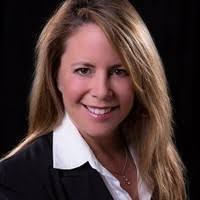Evaluating Real Estate Opportunities: How to Make the Right Choices when Acquiring New Assets
By Elizabeth Reynolds
- Looking to expand your real estate portfolio?
- Are you a new investor and interested in building wealth through real estate?
- Partnering with KW Commercial will help you to achieve your goals fast!
- We are here for you, every step of the way, locating properties that will meet your real estate portfolio needs!
There are three main methods for evaluating real estate properties and their ultimate value:
- Market Models: Leverages local comparable data
- Cost Model: Utilized in the event that local comparable data is not available
- Income Model: Leverages the income generated from the property
Commercial property is generally valued based upon the Income Model
- Office, retail and industrial/warehouse buildings, square footage is most important because, it is valued based upon the square footage
- Apartment complexes, the number of units is key
- Knowing the year a property was built is
important because you need to know its actual age versus it effective age.
- Effective Age is important in negotiating a longer amortization period on your loans
- Preventative maintenance has a positive effect
on the effective age of the property Below is a list of a few key areas to
consider, that can impact the effective age of the property
- Upgrades bringing the property to most current and/or state of the art conditions
- HVAC
- Roof
- Electrical
- Amenities
- Elevator
- Parking upgrades
Valuation Methods:
- Cash-on-Cash return: Cash flow before taxes/Initial investment
- Gross rent multiplier (GRM): Value of Property/Gross Potential Rental Income
- Price, Income and Expense per unit (PPU): Price of the Property/Number of Units
- Price, Income and Expenses per Square Foot: Price/Total Rental Square Foot
- Operating Expense Ratio: Operating Expense/Gross Income
- Break Even Ratio: Effective Gross Income/Operating Expense +Debt Service
- Maximum Loan Amount: Takes into account the maximum Loan to Value (LTV) of the individual bank based upon the debt coverage ratio and the current net operating income of the property
Capitalization Rate: As refinance rates increase, the value of the property decreases
- Value is determined by: NOI/Cap Rate
- Cap Rate: The lower the cap rate, the higher the value of the property
| Cap Rates | : | 5 | : | 10 | : | 20 |
| Years to return value of Property | : | 20 yrs | : | 10 yrs | : | 5 yrs |
- Cap Rate Modifiers: Investors need to adjust the cap rate based
upon the following modifiers
- Potential Appreciation
- Management intensity
- Tax benefits
- Ability to get money out of the deal
- Ease of financing
- Risk involved
- Potential Appreciation
Conservative Guidelines:
- Vacancy factor of 5% is generally used by lenders
- Total operating expenses should be approximately 45% to 55% of Gross Operating Income (GOI), before debt service
- This is not true for retail or office buildings, where pass through costs are common
- Replacement reserves should be 3% of GOI
- Repair and Maintenance costs should be 18% of GOI, depending on the type of neighborhood, age of the property and the amount of deferred maintenance
- Management costs should be about 5% of GOI
- Total Operating Expenses:
- Office Building: 30% to 40% of GOI
- Industrial/Warehouse: 10-15% of GOI
- Note: be sure to carefully evaluate the property’s marketing package in order to ensure that all the expenses are included, especially if the expenses seem to be low
Three Powerful formulas to learn:
- NOI:
Value * Cap Rate
- Value: NOI/Cap Rate
- Cap Rate: NOI/Value
- Debt Coverage Ratio (DCR): NOI (annual)/Debt Service (Annual)
Evaluation Systems/Team Members:
Partner with KW Commercial to complete the property financial modeling evaluation, physical property assessment and determine the properties upside based upon all the factors as outlined within this article. Further, KW Commercial will support you through the due diligence and overall property evaluation. We are here for you every step of the way in order to ensure you realize the upside of your new real estate investment.
Call us today to get started!
1-888-503-4443

Elizabeth Reynolds
Elizabeth Reynolds, Commercial Broker
Over 25 years of experience in commercial and multi-family acquisition, management and construction. Ms. Reynolds began her career as a property manager for a large multifamily complex while completing her Bachelor’s degree in Operations Management at Cal State Polytechnic University. Elizabeth has successfully overseen various real estate departments, including Property Management, Operations Management, Sales/Business Development, Acquisitions/Market Analysis, Financing, Advertising/Public Relations, as well as Supply Chain, Information Technology and Program/Project Management.




